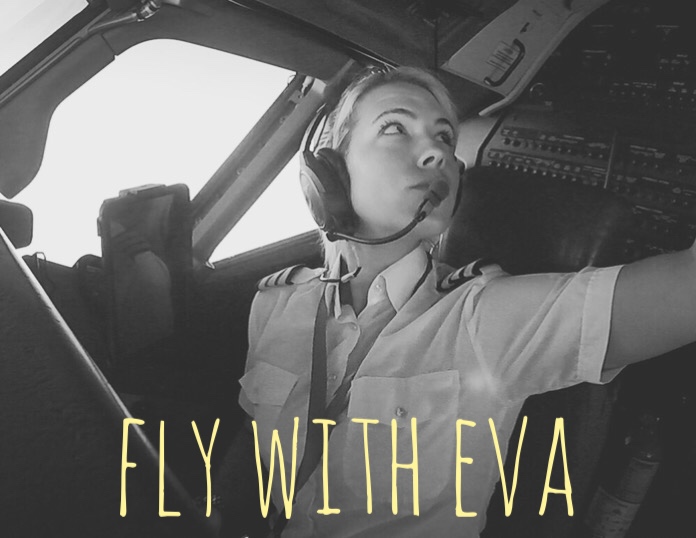The flight deck is a special office, and a very small one: just over two square meters. In this little closed space pilots can spend hours together. Is there an intimate atmosphere? There can be. Normally it’s just the two of us in the front. ‘What do you guys talk about all the time?’ cabin crew often wonders. They assume it’s kind of boring, only one other person to talk to, while they are in a cabin full of people. Every day in the flight deck is different. Some days are filled with smalltalk, silly jokes, and there are days with deeper, more personal conversations.
During several phases of flight pilots keep a ‘sterile flight deck’: we keep all communication to a minimum and relevant to the operation only. But during cruise flight there is time to talk, and on a long flight there is actually a lot of time to talk. When you are stuck together for hours, you can get to know the other person very well. Where I want to go with this story, is a day that I will never forget. It is a day I work together with a captain from Eastern Europe, let’s call him Marek.
I meet Marek in the crew room. We are scheduled to fly four sectors together today, and it is the first time that I meet him. He is based elsewhere in Europe, and works in my base for only a week. It is very likely that we will only fly together today, and that after the job is done we will never meet again. We introduce ourselves, prepare the flight paperwork, and together with the cabin crew we proceed to our aircraft to get ready for the first flight.
In cruise flight Marek clearly feels like talking. Some of my colleagues are more quiet and reserved, but this man is really out to get to know me. He is almost 60 years old, with plenty of flight hours and stories under his belt. Usually the journalist in me, eager to learn about a person, comes out. But Marek steers the conversation to revolve around me. So I tell him my story. I tell him about my flight experience, my time at University, my switch from journalism to aviation, my struggles to get a job, about my career plans, and about my family. ‘Are your parents proud?’ ‘Yes, oh yes they are.’ I tell him how I feel about living abroad, being an expat, about my passion for mountains and traveling. He wants to know all, and I feel comfortable telling him all.
With some colleagues you simply connect. Today is such a day. On this long day flying together there is a special atmosphere. Work goes smoothly. We have an excellent connection as professional colleagues, but also from person to person. Marek asks about my dreams for the future. He listens and comments, and sends out signals that he is somewhat proud of the young woman that he got to know.
‘I don’t know if I should tell you this’
Together we operate four flights, and now we are at the last flight of the day. We land, vacate the runway, and taxi to our stand. We shut down the engines, and perform the final checklists. It has been a long day. Before I leave the flight deck, captain Marek tells me that he had a good time working with me: ‘It has been a lifetime since I flew with a girl. It was such a great day for me.’ I smile. Then he gets more serious. ‘To be honest Eva, I will never forget this day.’ He pauses. ‘I don’t know if I should tell you this. My daughter… I had a daughter. She would have had exactly your age now. And all day I was wondering if she would have been anything like you?’
I look at him, and see the dynamics between us today in a whole new light. This hits right into my heart. But through his behaviour I notice that, despite the questions all day long, now is not a moment for questions. Marek instructs me to leave the airplane and take our paperwork with me to the crew room. Later, in front of the terminal building, we say goodbye and go our separate ways.
I am deeply touched. Never will I forget this day.




